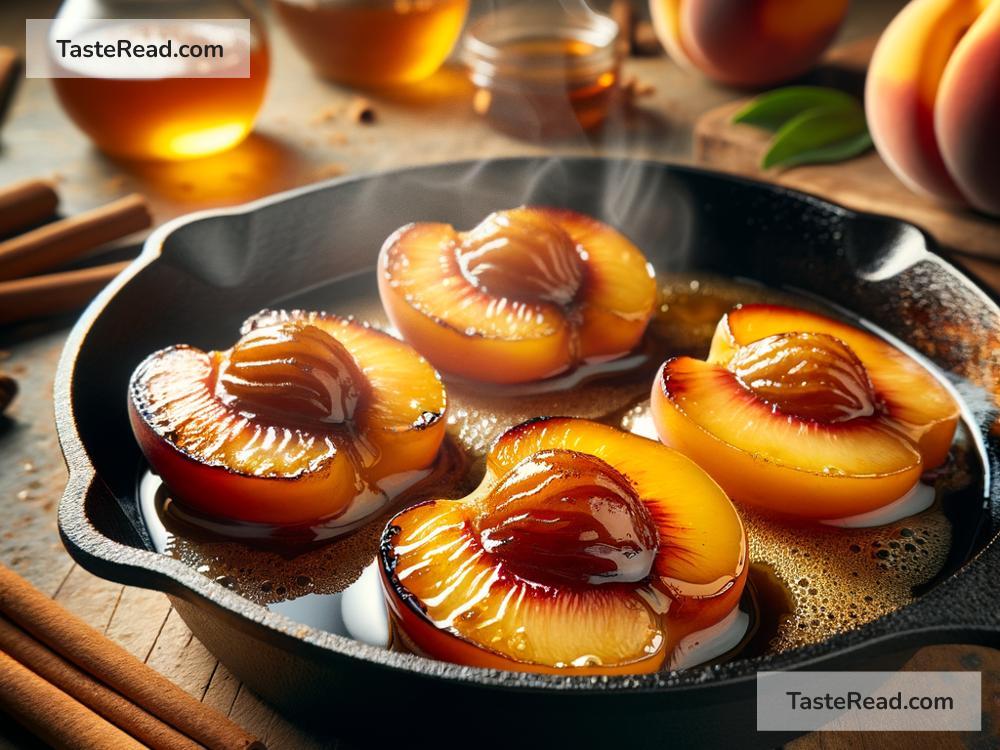Why Fruits Taste Different When Cooked: A Simple Explanation
Fruits are nature’s candy—sweet, juicy, and bursting with flavor. Whether you bite into a crisp apple or enjoy a handful of ripe strawberries, each fruit has its unique taste that makes it special. But have you ever noticed that fruits taste different when they’re cooked? For example, raw apples taste fresh and crunchy, but once baked in a pie, they become soft and sweeter. Why does cooking change the flavor of fruits? Let’s dive into the science behind this transformation and simplify it so everyone can understand.
The Basics: What Gives Fruits Their Flavor?
Before we explore cooking, it’s important to understand what gives fruits their taste in the first place. Fruit flavors are a mix of three things:
- Natural Sugars: Fruits contain sugars like fructose, glucose, and sucrose, which make them sweet.
- Acids: Some fruits, like lemons and oranges, have acids (like citric acid) that create a tart or sour flavor.
- Aromatic Compounds: These are tiny molecules responsible for the fruity smells and subtle flavors we enjoy. For example, the fruity aroma of a ripe banana or the floral scent of a peach comes from these compounds.
Together, these elements create the delicious and recognizable flavors we associate with fresh fruits.
Heat Changes Everything!
When you cook fruit, heat affects all three flavor elements—sugars, acids, and aromatic compounds—leading to noticeable changes in taste. Here’s a simple explanation of what happens:
1. Sugars Break Down and Caramelize
Cooking fruit causes its natural sugars to break down and sometimes caramelize (brown). This process makes the fruit sweeter and gives it an extra layer of richness. For example, when you sauté bananas or roast peaches, their sugars caramelize and make them taste even sweeter than when they’re raw. This is why desserts like apple crisp or fried plantains taste so indulgently delicious!
Caramelization also adds a slightly nutty or smoky flavor, depending on the fruit and how long you cook it. That’s why overcooked fruit can sometimes taste burnt—it’s simply the sugars caramelizing too much.
2. Acidity Is Reduced
Cooking fruit often reduces its acidity, making it taste less tart or sour. Heat breaks down the acidic compounds in fruit, so their sharpness fades. For example, when you bake tart berries like raspberries or cranberries, they lose some of their tanginess and become milder in flavor.
This is also why very sour fruits like rhubarb or lemons are often cooked with sugar in pies, jams, or sauces—the heat softens their acidity, while the sugar enhances their sweetness. It’s the perfect balance of tart and sweet!
3. Aromatic Compounds Change or Evaporate
Many of the fruity aromas we love are sensitive to heat. When fruits are cooked, some of these aromatic compounds are released into the air (which is why your kitchen smells amazing when you bake a fruity dessert), while others break down entirely.
The result? Cooked fruits often smell and taste different because their original aromatic compounds are transformed or lost during cooking. For example, when strawberries are cooked, their fresh, fruity aroma becomes deeper and more jam-like. Similarly, pineapples develop a mellow sweetness and lose their sharp tropical edge when baked or grilled.
Texture Plays a Role in Flavor
It’s not just the chemical changes that make cooked fruit taste different—heat also alters the texture, and this affects how we perceive its flavor. When fruits are cooked, their structure and fiber break down, making them softer. For example, hard fresh apples become tender when baked, and juicy berries turn into a soft, syrupy sauce when cooked.
Why does texture matter? Because softer fruits often release their juices more easily, giving them a fuller, richer taste. Raw fruits, on the other hand, require chewing, which sometimes adds a crispness to their flavor that’s lost when cooked.
Mixing Flavors During Cooking
Cooking fruit often involves combining it with other ingredients like sugar, butter, spices, or cream. These additions enhance the fruit’s flavor even more and create entirely new taste experiences. For example:
- Baked apples with cinnamon have an aromatic warmth that raw apples don’t offer.
- Grilled pineapple with honey develops a smoky sweetness that feels tropical and indulgent.
- Jam made from cooked berries combines sweetness and tartness into a vibrant spread.
These added flavors transform cooked fruit into something more complex and exciting than its raw counterpart.
Why Cook Fruits at All?
If raw fruits taste great, why cook them? Cooking brings out different flavors, textures, and aromas that raw fruit simply can’t offer. It’s a way to experiment with new tastes, and it often makes fruits even sweeter and richer. Plus, cooking helps preserve fruits by turning them into jams, sauces, and pies—perfect for enjoying seasonal produce all year long.
Conclusion
Fruits are versatile, and cooking them lets us experience their flavors in a whole new way. From caramelized sweetness to softened acidity and transformed aromas, heat works its magic on fruit to create delicious results. The next time you cook fruit, think about the changes happening inside. Whether you’re baking apples, grilling peaches, or simmering berries, you’re unlocking a whole new side of their taste. So get creative in the kitchen, and enjoy the wonderful world of cooked fruits!

